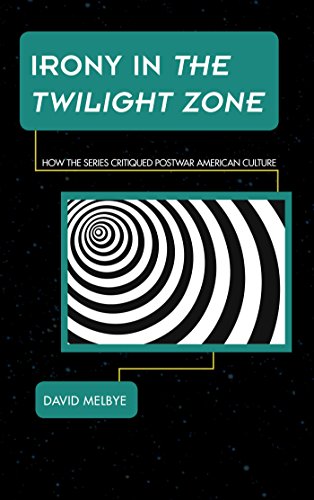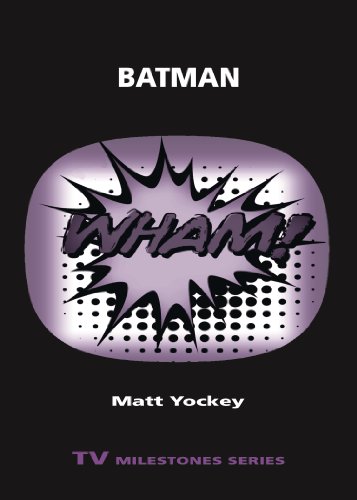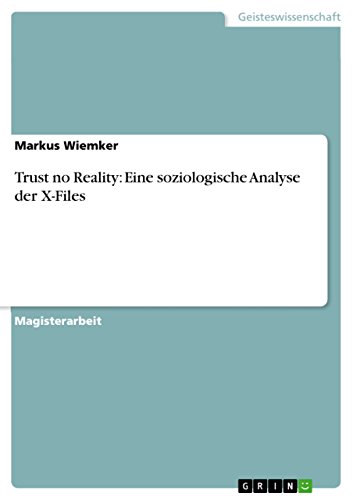
By David Melbye
Read Online or Download Irony in The Twilight Zone: How the Series Critiqued Postwar American Culture (Science Fiction Television) PDF
Best tv arts & entertainment books
Batman (TV Milestones Series) - download pdf or read online
ABC’s action-comedy sequence Batman (1966–68) famously provided a twin deal with in its wildly renowned portayal of a comic hero in a dwell motion structure. teenagers uncritically authorized the show’s plots and characters, who have been guided through lofty beliefs and social values, whereas adults reacted to the transparent parody of the values on exhibit.
Markus Wiemker's Trust no Reality: Eine soziologische Analyse der X-Files PDF
Magisterarbeit aus dem Jahr 1998 im Fachbereich Soziologie - Klassiker und Theorierichtungen, notice: 1,0, Rheinisch-Westfälische Technische Hochschule Aachen (Institut für Soziologie), ninety six Quellen im Literaturverzeichnis, Sprache: Deutsch, summary: A. Relevanz und Darstellung I. textual content und Kontext„The X-Files is a made of its time now not since it holds a replicate to fact yet since it displays the attitude of its era:.
Who Travels with the Doctor?: Essays on the Companions of - download pdf or read online
Through the long-running BBC sequence health professional Who, the surgeon has not often been alone—his partners are crucial. Male or (mostly) lady, alien or (mostly) human, younger or outdated (none as outdated as he), the handfuls of partners who've travelled with him during the last 50 years have served as sympathetic proxies for the viewers.
Read e-book online May the Armed Forces Be with You: The Relationship Between PDF
Technology fiction and the U.S. army frequently inhabit a similar ingenious area. guns expertise has taken suggestion from technology fiction, from the bazooka and the atomic bomb to weaponized lasers and drones. Star-spangled superheroes bought warfare bonds in comedian books despatched to GIs in the course of global conflict II, and embellished the noses of bombers.
- Women and the White House: Gender, Popular Culture, and Presidential Politics
- Women and the White House: Gender, Popular Culture, and Presidential Politics
- Broadcast Announcing Worktext: A Media Performance Guide
- Queers Dig Time Lords: A Celebration of Doctor Who by the LGBTQ Fans Who Love It
Extra info for Irony in The Twilight Zone: How the Series Critiqued Postwar American Culture (Science Fiction Television)
Example text
Irony in The Twilight Zone: How the Series Critiqued Postwar American Culture (Science Fiction Television) by David Melbye
by Michael
4.0



